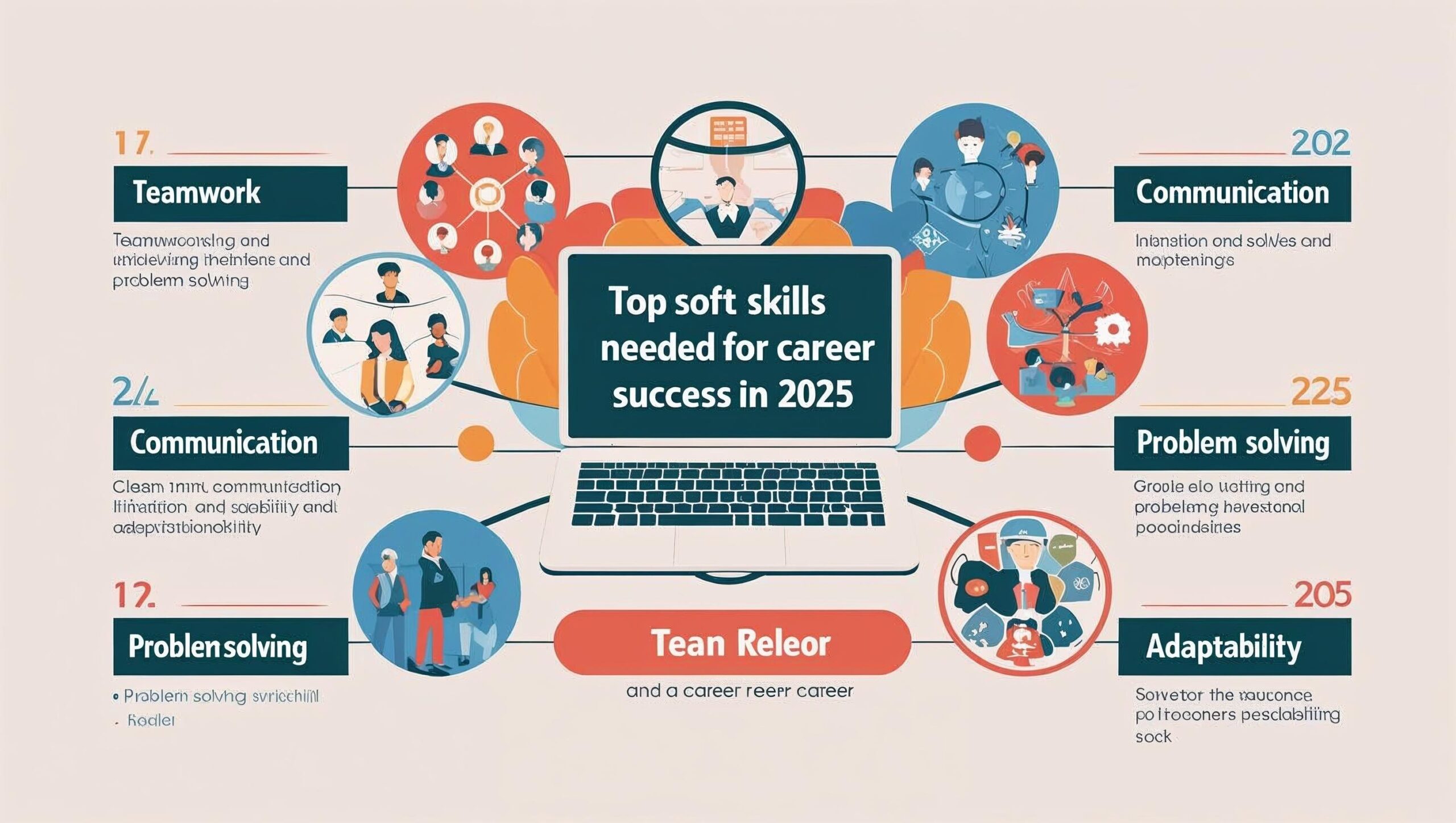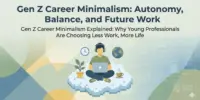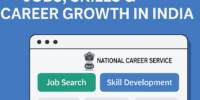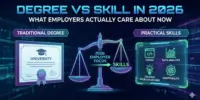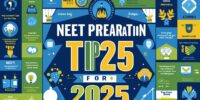Top 30 Soft Skills You Need to Succeed in 2025 (With Real-Life Examples)
Why Soft Skills Matter More Than Ever in 2025
In today’s fast-changing world, technical knowledge alone is no longer enough. Employers are now hiring people who not only have the qualifications but also the soft skills to adapt, collaborate, and lead.
According to a 2025 report by LinkedIn, 92% of recruiters say soft skills are as important—or even more important—than hard skills. From communication to adaptability, your soft skills can be the deciding factor between getting the job or losing it to someone else.
Especially in a world of AI, automation, and remote work. Soft skills like emotional intelligence, problem-solving, and time management are now in high demand across every industry.
Let’s dive into the top 30 soft skills you need in 2025 to stand out, grow in your career, and build meaningful connections.
Top 30 Soft Skills You Need to Succeed in 2025
1. Communication Skills
Being able to express ideas clearly is essential. Whether it’s writing emails or talking to clients, clear communication builds trust.
Example: A project manager explaining a delay to a client in a calm and professional tone.
2. Active Listening
Listening isn’t just hearing. It’s about understanding and responding with empathy.
Example: In a team meeting, listening to everyone’s ideas before jumping to conclusions.
3. Emotional Intelligence
EQ is the ability to manage your own emotions and understand others’. In 2025, it’s a must-have skill.
Example: A team leader calming a stressed colleague during a deadline crisis.
4. Adaptability
The world is changing fast. Those who adapt quickly survive and succeed.
Example: Switching from in-office to remote work without losing productivity.
5. Problem-Solving
Companies value people who find solutions instead of complaining about problems.
Example: A customer support agent resolving a complaint without needing a manager’s help.
6. Critical Thinking
Think logically. Analyze situations. Avoid quick decisions without understanding the full picture.
Example: A marketer studying user data before launching a campaign.
7. Teamwork
Collaboration is key, especially in hybrid or remote teams.
Example: Helping a teammate finish their task to meet the team’s deadline.
8. Creativity
AI is great at repetition. Humans stand out with creativity.
Example: A graphic designer creating a fresh logo concept that tells a brand’s story.
9. Time Management
Managing your time well means doing more in less time.
Example: Prioritizing tasks using a daily planner or digital app.
You May Like To Read:
- The Best 15 Website Popup Builders for Lead Generation
- List of 2025 Central Government Schemes with PDF Download
- Top 25 Work-from-Home Jobs in 2025 That Actually Pay Well
- Make Money Online with Binance
- Best Time Management Tools and Apps You Need in 2025
- How To Start Budgeting—A Beginner’s Guide
- The top 10 skills you’ll need in 2025
10. Leadership
You don’t need a title to be a leader. Take responsibility and guide others.
Example: A junior employee mentoring a new intern.
11. Conflict Resolution
Conflicts are common. Solving them peacefully is rare.
Example: Mediating between two colleagues to clear misunderstandings.
12. Decision Making
Quick and smart decisions can save time and resources.
Example: Choosing the right vendor based on quality, cost, and delivery time.
13. Self-Motivation
When no one’s watching, can you still perform your best?
Example: A freelancer meeting deadlines without supervision.
14. Empathy
Empathy helps build stronger relationships in personal and professional life.
Example: Understanding why a teammate missed a deadline due to personal issues.
15. Networking
Build genuine connections. Opportunities often come from people you know.
Example: Attending online industry events and following up with connections on LinkedIn.
16. Public Speaking
Speaking confidently in front of a group boosts your professional image.
Example: Presenting a quarterly report to your team or stakeholders.
17. Negotiation
Know how to ask for what you deserve—calmly and clearly.
Example: Negotiating salary with confidence after showing your value.
18. Stress Management
Handle pressure without panic.
Example: Taking a short break or deep breaths before a high-stakes meeting.
19. Work Ethic
Be reliable. Be consistent. It builds your personal brand.
Example: Always delivering your tasks on time, no matter what.
20. Responsibility
Own your actions. Don’t shift blame.
Example: Admitting a mistake and working to fix it without excuses.
21. Patience
Good things take time. So does success.
Example: Staying calm when teaching someone who’s learning slowly.
22. Curiosity
Stay hungry to learn. The most successful people keep learning.
Example: Taking an online course on AI to stay relevant in your field.
23. Cultural Awareness
In a global workplace, respecting different cultures is vital.
Example: Understanding time zone differences when scheduling international calls.
24. Confidence
Believe in your ideas and speak up when needed.
Example: Sharing your thoughts in a brainstorming session.
25. Coaching and Mentoring
Help others grow. It builds trust and leadership.
Example: Guiding a junior colleague through a new process.
26. Attention to Detail
Small mistakes can cause big problems. Focus is key.
Example: Double-checking a proposal for errors before sending it to a client.
27. Resilience
Bounce back from failure. Keep going.
Example: Reapplying for a job after a rejection—and getting selected the next time.
28. Positive Attitude
Optimism creates a better work environment and more success.
Example: Encouraging your team even when a project is delayed.
29. Customer-Centric Mindset
Think from the customer’s point of view.
Example: A developer designing a user-friendly app by testing how users interact with it.
30. Growth Mindset
Believe that you can improve with effort.
Example: Learning from feedback instead of taking it personally.
Final Thoughts on Top 30 Soft Skills You Need to Succeed in 2025: Start Building These Soft Skills Today
Soft skills are not just “nice to have” in 2025. But they are essential. You’re a student, a job seeker, a manager, or a freelancer. These skills will help you communicate better, grow faster, and lead smarter.
Unlike hard skills, soft skills are transferable across careers. You don’t need to go back to school to develop them. You can practice them every day—in conversations, during work, or even while volunteering.
✅ Here’s How to Start Improving Your Soft Skills:
- Take online courses (Coursera, Udemy, LinkedIn Learning)
- Practice active listening in daily conversations
- Ask for feedback and actually work on it
- Read books on leadership, communication, and productivity
- Join public speaking or team activities
💡 Remember:
“Technical skills may get you hired, but soft skills will get you promoted.”
📝 Subscribe to Our Blog
Get weekly insights, updates, and educational tips right in your inbox. Stay informed, stay inspired!
FAQs About Soft Skills in 2025
Are soft skills more important than hard skills in 2025?
Yes, for many roles, soft skills are equally or more important, especially in leadership, service, and client-facing jobs.
How can students improve soft skills?
By participating in group projects, internships, debates, and communication workshops.
Can soft skills be learned online?
Absolutely! Platforms like Coursera, Udemy, and LinkedIn Learning offer excellent soft skill courses.
Are soft skills needed in technical jobs like engineering or IT?
Yes. Collaboration, communication, and problem-solving are vital even in tech-heavy roles.
What are the best soft skills for remote jobs?
Time management, communication, adaptability, and self-motivation top the list.
Which skills will be most required by 2025?
By 2025, the most required skills will include emotional intelligence, adaptability, critical thinking, communication, and tech-savviness, as workplaces rapidly evolve with AI, automation, and remote collaboration. These soft skills help individuals thrive in dynamic, team-driven, and digital-first environments.
What are the three soft skills to learn in 2025?
In 2025, the top three soft skills to learn are emotional intelligence, adaptability, and critical thinking. These skills will help you navigate change, work well with others, and solve complex problems in an AI-driven world.
What are the 7 major soft skills?
The 7 major soft skills are communication, teamwork, adaptability, problem-solving, emotional intelligence, time management, and leadership. These core skills are essential for success across all industries and job roles in 2025.
What are soft skills for Forbes 2025?
According to Forbes, in 2025, the most emphasized soft skills are emotional intelligence, adaptability, creativity, virtual teamwork, resilience, and networking, alongside problem-solving—skills that help professionals thrive in dynamic, AI-driven, and hybrid workplaces.
Download Free Soft Skills Tracker (PDF)
👉 Want to track your soft skills progress?
[Put in your Email and press submit to download our FREE Soft Skills Tracker PDF.] – Includes self-assessment checklists and daily improvement goals.
[wpforms id=”2803″]

